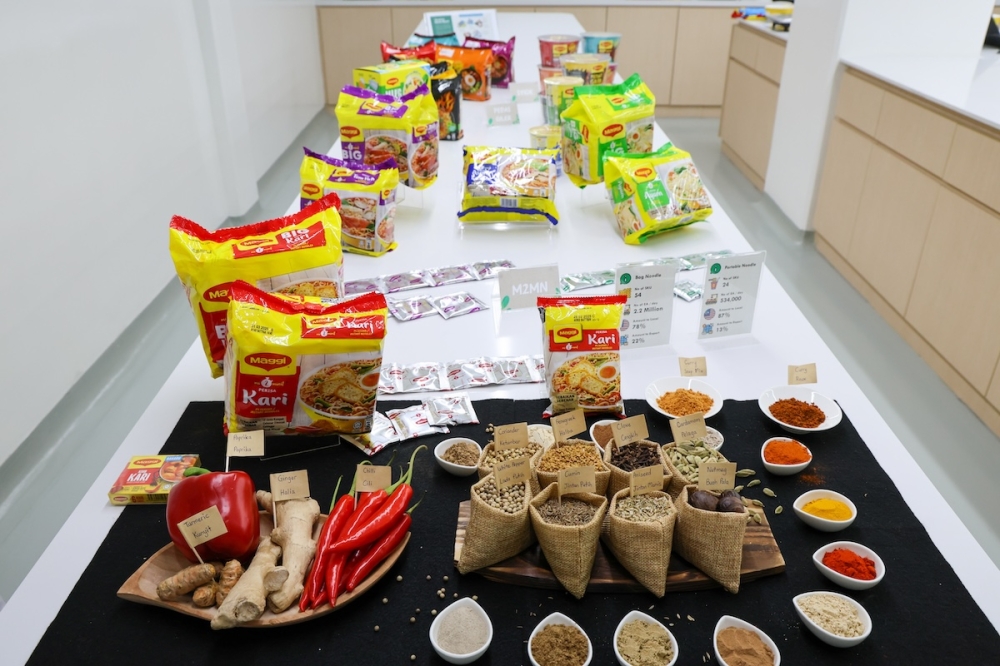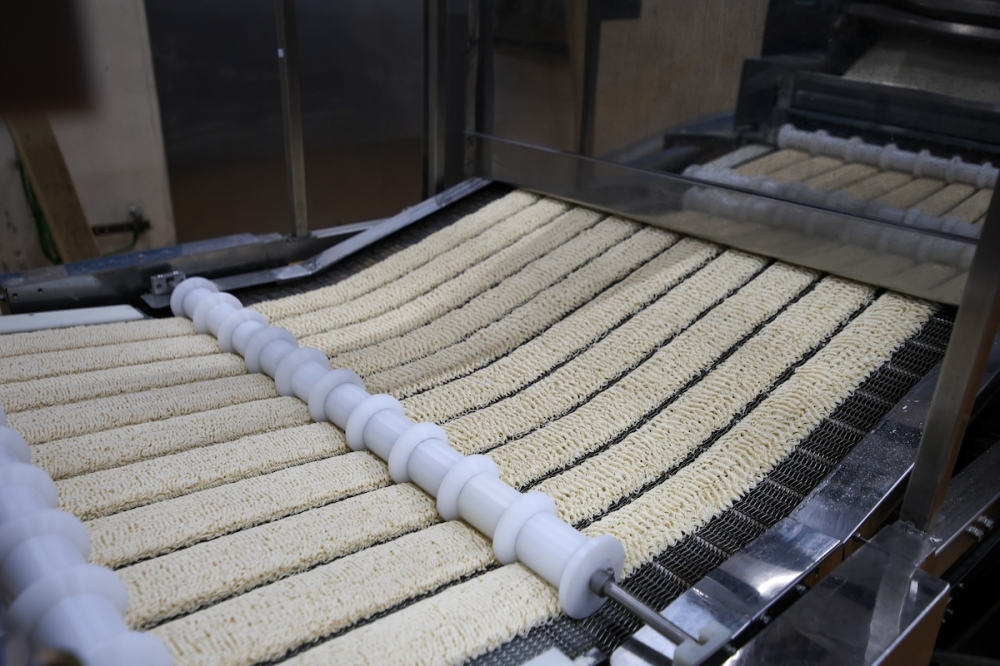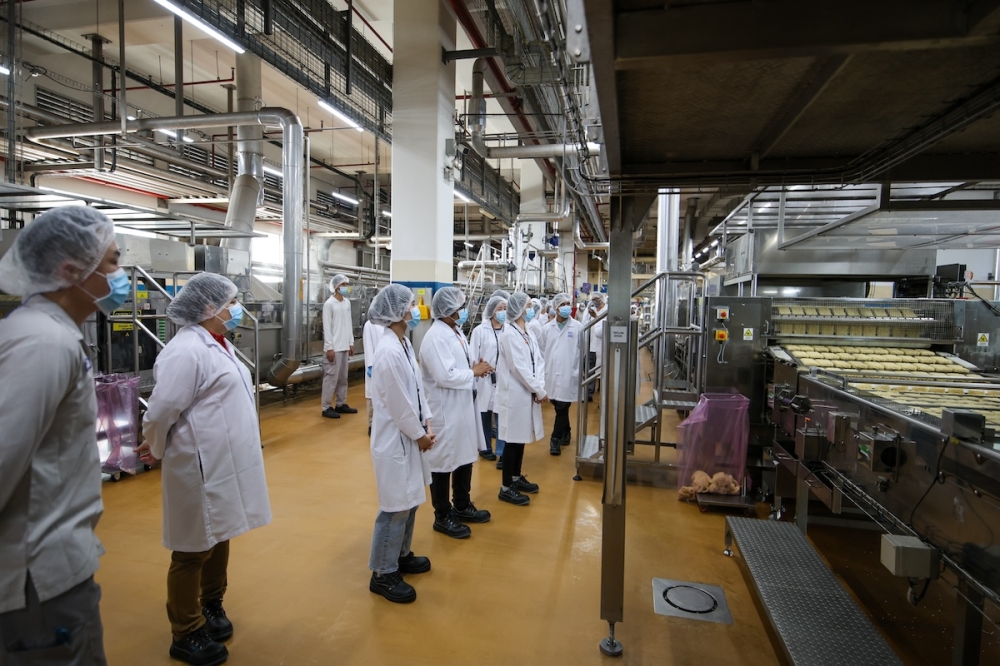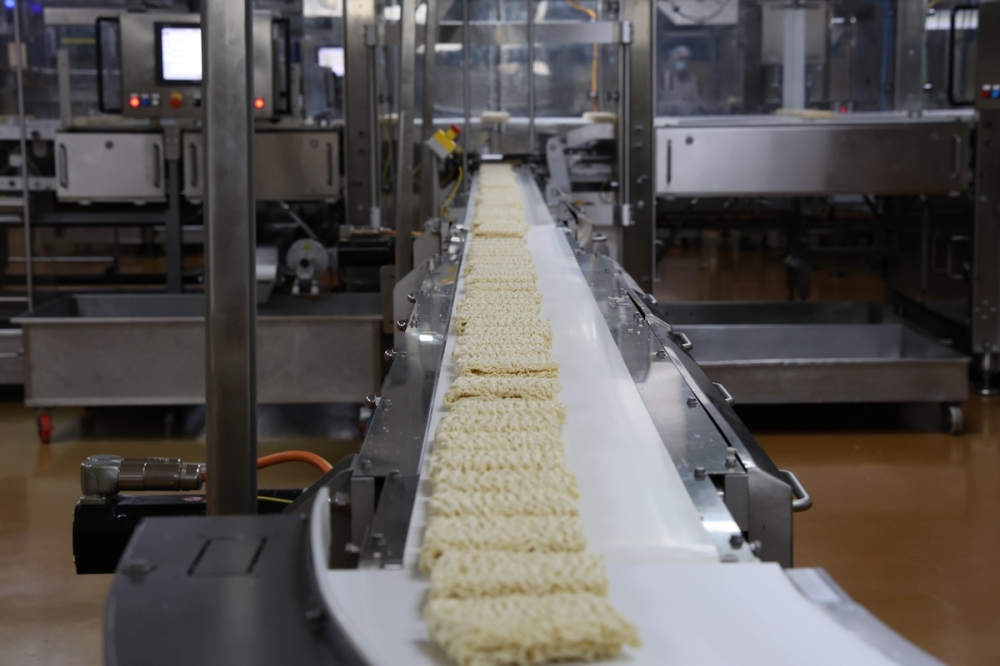SHAH ALAM, Sept 15 — If you are a bona fide Malaysian, you would surely have indulged in a packet or cup of Maggi noodles — whether for a late-night snack, while camping, or for lunch at mamak eateries.
But have you ever wondered about the journey your Maggi noodles take from the factory to your table?
Malay Mail recently had a chance to visit the brand’s factory in Batu Tiga here, and we followed the process from perhaps the dough to getting the perfect spice mix.
Here is how your favourite instant noodles are made:

The right mix of taste
The seasoning powder we put into hot water to produce the flavourful broth for the noodles begins on the mixing floor, where tastemakers, seasoning powder, stock cubes, and Maggi Cukup Rasa are blended together.
The tastemaker is a carefully crafted blend of spices, which we were told include among others coriander powder, cumin powder, black pepper powder, and fenugreek powder.
Meanwhile, the seasoning powder would include iodised salt, wheat flour, natural dried vegetables like onion, tomato, and garlic, sugar, and a cornstarch and salt mix, to name a few.
The stock cubes are made from concentrated extracts of meat or vegetables, in addition to sugar, chili, pepper, cloves, cassava, and onion.
What is Maggi Cukup Rasa? This seasoning which can also be bought by itself, is a special granulated combination of salt and umami, with the blend including salt, cassava starch, sugar, garlic, anchovies, onions, and spices.
Blending these ingredients once took 45 minutes, but a new batch of machines cut the time down to around half an hour — allowing faster and more consistent blending of over 75 Maggi recipes.

Put a spring in your mee
Surprisingly, the noodles require wheat imported from Australia, which Maggi said is chosen because for its consistency and high protein content, which are essential for achieving the ideal noodle texture.
To make the springy noodles we are all accustomed to, the wheat flour is combined with lye water — also called kansui in Japanese — to create a dough, much like usual ramen noodles.
This dough is then put into a noodle making machine, which rolls it into thin sheets and before cutting it into strands.
The noodles are cut into strands of approximately 1 millimetre thick and shaped into wavy patterns using specific rollers in the production machine.
They are then steamed to gelatinise the starch — a process when heat causes the starches in the dough to absorb moisture and swell, forming a gel-like substance that gives the noodles their chewy texture.
After steaming, the noodles are then fried in palm oil. Although abundant in Malaysia, Maggi said this oil is chosen for its balanced composition of fats — 50 per cent saturated, 40 per cent monounsaturated, and 10 per cent polyunsaturated — which gives the noodles their crispy texture and helps maintain freshness.
Once fried, the noodles are cooled, dried, and wrapped.

Each pack is then put into a machine for thorough screening, including metal detection to check for contaminants and a check-weight to ensure the correct weight — around 70 grams per pack.
If a packet is underweight, the machine will automatically reject, separate, and dispose the noodles. The wrappers, meanwhile can 100 per cent be recyclable.
Don’t forget the seasoning sachet! This would also be verified by the machines.
The entire process, from start to finish, takes about 20 to 30 minutes.
Making sure of a great product
Before reaching stores, Maggi said it products undergo rigorous quality and safety checks, including the Hazard Analysis and Critical Control Points (HACCP) system, which monitors and controls potential hazards during production.
For Maggi noodles, this means ensuring every step, like frying, is done right and that metal detectors are functioning properly.

A sensory evaluation is also conducted where trained assessors assess the product's taste, texture, and overall quality. Sounds like a dream job, no?
Only after passing these checks does the stock make its way to stores.
Since 1971, the Batu Tiga Factory has been a cornerstone of Nestlé’s operations in Malaysia.
Producing over 2.5 million packs of Maggi noodles each day, it exports products to more than 20 countries, including South-east Asia, Australia, the United Kingdom, and South Korea.






















